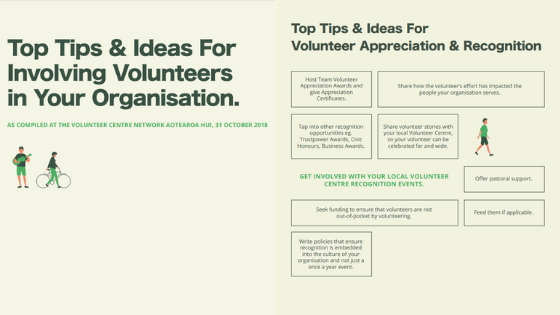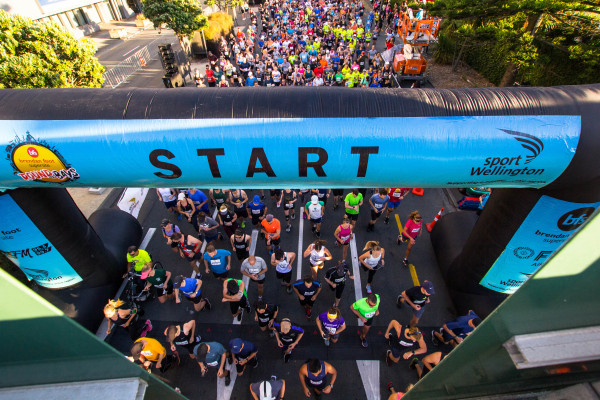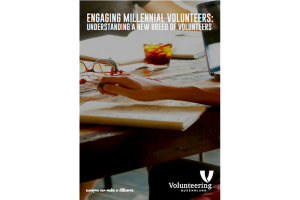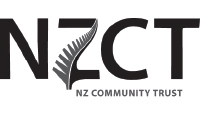Recruitment Resources
Why do you need a recruitment plan?
There isn't one blanket recruitment message or strategy that will successfully entice all potential volunteers. By developing a recruitment strategy you can identify when and how you will recruit for positions and plan for any associated costs (e.g. advertising).
Evaluating the strategy you use to recruit for a volunteer position is important as it will allow you what did and did not work and why. This can be useful to ensure a more effective recruitment next time around and also for succession planning/keeping records.
Keep in mind that the success of a method can vary from year to year for a number of reasons (e.g. the time or year or financial restrictions).
There is tendency to imitate what other organisations are doing and become focused on the ‘how to’ detail. Instead, think about recruiting the right people for your organisation first.
When recruiting it's important to consider the following:
Not: |
But rather: |
|
|
When thinking about your recruitment plan, consider the following steps:
Check that your culture is healthy
- It's easier to attract volunteers to organisations that have positive cultures. Are you all friendly and welcoming people?
Assess if the culture in your organisation is healthy here.
Have a clear understanding of your organisation's cause/purpose
- Being able to clearly articulate the purpose of your organisation, what cause it's working towards, will help give people a better understanding of why they should/might want to volunteer for you.
Identify the roles you need to fill
- Before you start recruiting it's important to know how many people you need and exactly what you want people to do
Create job descriptions for each role
- A role description is important for volunteers because it allows them to know exactly what they are taking on, what is expected of them and how they will be supported. It also gives them the opportunity to make an informed decision about the role. Having role descriptions shows that your club is organised and committed to looking after its volunteers.
- The process of creating job descriptions also will help you get a clear idea of exactly who you need, how long for, and what they will be doing.
Your recruitment plan should include the following key information:
- Role
- Person responsible for filling role
- When the position is vacant
- Who you will target
- Your method of recruitment
- The resource needed
- Evaluation of process
Download a PDF of our recruitment plan template
Other things to consider:
- Think about what you can do for the volunteer, not what the volunteer can do for you.
- Realise that volunteers don’t need to be paid, but they do want something out of it, and it is important to know what those reasons are. Hint: Personal development is usually one of those, especially those in different ethnicities and younger people.
- Realise that most sport volunteers will still come from within their sport. They are the low hanging fruit so use existing networks to get bang for your buck.
- Don’t be afraid to shoulder tap people. Asking people personally is very effective – most love to be asked and are flattered when you do so.
- Go a step further by asking people to do a particular role that you have identified as suitable for them.
- If a role does not involve committee work, say so. The thought of regular commitment and being the last man standing does prevent volunteers from coming forward.
- Use success stories of past volunteers.
- Follow-up enquiries immediately.
- Carry out succession planning so that vacancies are identified early.
Download a PDF on Finding the right Volunteer from Volunteer Wellington
Download a PDF on Matching Volunteers to Roles from Volunteer Wellington
Getting your recruitment messaging right is critical to the effective recruitment of volunteers.
Your messaging should:
- be short, snappy and personalised where possible
- be friendly and positive
- Include role descriptions that outline time commitments
- Emphasise any areas of personal development that you can offer (for example writing grant applications, public speaking, coaching qualifications).
- Promote your causes – sport, health, family (go back to your mission statement if you have one). For example, sport is widely recognised as beneficial to health or for social cohesion.
- Explain how the volunteer work will assist with the cause.
Consider the following example volunteer recruitment messages: |
Example One:
Key points:
|
Example Two:"Your help and participation is needed! As noted in the Te Matapuna Journal story we are seeking volunteers to help plant up to 10000 trees in the Te Matapuna wetland. This is an opportunity for members who live outside the Central North Island and locals to participate. Join us for a day or two - or for the entire week! The purpose of this week is to provide an opportunity for members and supporters to:
(NB there is a lot more detail that I have not included)" Key points:
|
Example Three:"Volunteers needed to manage teams Key points:
|
Once the messaging of your causes and the volunteer contribution to those causes is complete, you can then develop a plan that could look like this as a starting point for your recruitment.
When developing role descriptions, it's important to make the role achievable.
If necessary, split the role and offer people the opportunity to share it. Some people are happy to volunteer, but they don't want an on-going commitment.
Consider breaking down positions to cater for short-term volunteering opportunities or one-off activities. Remember, flexibility is the key.
Your job description should include:
Role/title
- The title is important. You want to make it appealing but not overwhelming. Is officer, coordinator, director or manager more appropriate?
Description
- Give a brief description of what the role is.
Qualifications needed
- You may want to consider essential qualifications (due to legal requirements or liability) and desirable qualifications, BUT you don’t want to deter great volunteers because you have been too specific. Remember, you can always provide training.
Duties/responsibilities
- Display as a bulleted list.
Skills/knowledge required
- Display as a bulleted list.
- Consider transferable skills.
Experience required
- Is this essential or desirable to the role? Someone who is enthusiastic and willing to learn could be a great asset in the position but may be discounted because he/she doesn’t have experience.
Training available
- Note any courses/training that would benefit the person in the role.
Main point of contact/who the position reports to
- Ensure the line of communication is clear.
- Including this information helps volunteers understand where they fit into the club and whom they should contact if they have problems.
Approximate number of hours required
- This information gives the volunteer an idea of the time commitment. It will also ensure that the volunteer is fully aware of what is required.
Tenure
- Cover whether it is a fixed term such as coaching for the entire season or just through to the AGM.
- For committees, consider staggering the different positions so that not every position is changed in the same year.
Location
- This could be the physical location of the organisation; include any travel that may be needed.
Whether this position is mandated to notify (child protection)
You may also want to include:
Others in the team
- Are they going to be working alone or part of a team?
For example, they may be the U/9 coach, in which case the U/7 and U/11 coaches may be part of a team of coaches.
Benefits
- Consider including the benefits of this role. Think in terms of what the volunteer will get out of this role.
Download a PDF of our Job Descriptions Plan
Download Volunteer Wellington's Template on Writing a Role Description
Volunteer coordinator role description template
President role description template
Secretary role description template
Treasurer role description template
Coach role description template
Team manager role description template
Have you considered virtual volunteering? Virtual volunteers complete a role partly or wholly via the Internet.
Roles suited to a virtual volunteer include:
- writing the club newsletter
- updating records
- preparing promotional material
- writing articles for a local paper
- research and applying for grants
- monitoring social media sites
To best manage a virtual volunteer, the organisation will need to:
- ensure good lines of communication exist
- establish how it will recognise and reward volunteers
- promote what the virtual volunteer does. Because the volunteer is mostly 'unseen', some club members may have trouble thinking of them as 'real'
- ask how the volunteer is doing on a regular basis to avoid ‘burnout’
- set clear expectations and timeframes
- consider if insurance coverage is needed
To best fulfill the role, the virtual volunteer will need to:
- have Internet access
- demonstrate good written communication
- stick to deadlines and set realistic timelines to complete tasks
- be able to work autonomously
- be self-disciplined and self-motivated
- answer e-mails promptly
- be flexible
- understand the commitment
- report to the committee or VC at least once a week
- follow the policies of the club
Develop a virtual volunteer action plan:
- List of all the roles needed in the club and if they could be divided into smaller roles
- List roles/tasks that could be performed by ‘virtual volunteers’
- Determine who should update or write each role description
- Research available example role descriptions
- Create role descriptions for all roles in the club
By 2020 Millennials will account for over 50% of the global workforce, forcing organisations to shape up if they hope to attract the best and brightest of this generation.
Millennials seek a sense of purpose, and this desire informs their decision when seeking employment experiences. Millennials’ career aspirations, attitudes about work, and knowledge of new technologies will define the culture of the 21st century workplace.
The information in this section has been adapted from a report by Volunteering Queensland, written by Kathleen McLay.
Download a PDF of the full report
What do Millennials want?
Millennials seek not only a sense of purpose from their work but also rapid advancement opportunities and continuous feedback, learning and development. They look to their superiors to provide professional guidance but no longer revere them for their accumulated knowledge.
They no longer see themselves staying with one employer or even in one profession for the length of their careers but rather seek varied experiences.
Millennials’ approach to work translates directly to their desired experiences when undertaking volunteer work, presenting a challenge for volunteer organisations who will have to alter their practice in order to attract Millennial volunteers.
What's the value of volunteering for Millennials?
Volunteering presents an opportunity for those Millennials looking to develop their professional skills. This becomes increasingly relevant in the case of students who look to volunteering as a means to develop both soft and hard professional skills.
- Volunteering is now seen as highly valuable by hiring managers, especially in the case of first time job seekers.
Keys for successfully managing Millennial volunteers?
Provide them with Leadership Development
- For Millennials leadership goes beyond the traditional constructs of authority, decision-making and responsibility. Millennials see leaders as inspirational, strategic thinkers who are passionate about what they do and great with people.
- Providing these leadership experiences does not necessarily need to be about giving Millennials responsibility or authority over others. Instead leadership experiences should focus on providing experiences that correspond to the skills they see leaders possessing.
Provide them with opportunities to develop their skills
- Millennial volunteers represent a unique resource as their technological aptitude makes them highly adept at sourcing and understanding information. This makes them well positioned to undertake complex projects or tasks.
-
Utilising practices including role design, feedback and mentoring provides a strong foundation for ensuring Millennials’ skills are being fully utilised to the benefit of organisational goals.
Accommodate episodic and project volunteers
- Millennials expect varied and interesting employment experiences and rapid career progression. Organisations should look away from traditional ideas of retention, instead planning for turnover with volunteers, even in more traditional roles.
Evaluate your role design
- The first step on your journey to onboarding Millennials is designing roles that they will want to do. This represents a deviation from traditional thinking in which roles were created based on immediate organisational need, rather than a fluid focus on attracting and utilising talent.
- This include considering skill variety; identity; significance; autonomy; technology; feedback; role enrichment vs role enlargement; and identifying opportunities.
Develop a targeted recruitment strategy
- Taking a considered approach to recruitment will help you tailor your advertising and communication to reach Millennials and present your organisation as a desirable place to volunteer.
- Placing the right volunteers in the right roles represents a significant value add for your organisation. This allows you to capitalise on the high skill level of your volunteers to ensure efficiency, output and innovation is maximised.
- This involves:
- Who is your ideal candidate?
- Selling your organisation
- Making the benefits of the role clear
- Using targeted advertising to reach your ideal candidate
- Setting a recruitment timeline
- You'll notice that many aspects of this strategy mirror what you need to do in your regular volunteer recruitment. The key is tailoring your recruitment strategies to the individual populations/volunteers you want to target.
Develop an engagement strategy
- Prepare for your volunteer's first day
- Get the physical space ready
- Advertise your new recruit
- Create a plan for their first day
- Get your new recruit networking
- Providing consistent feedback through informal catch-ups is an easy-to-implement way of ensuring your Millennials remain engaged.
- This includes creating processes that allow for "exit feedback"when your volunteers leave the organisation
- Ongoing coaching and mentoring is a fantastic way to engage Millennials as they look to senior employees and managers to provide career guidance.
-
Allocating a mentor to your volunteer who can support them in their personal and professional development, will go along way towards keeping them engaged.
-
Download the full report for more information, templates and ideas.
More volunteer resources
Volunteer Wellington has provided some great tips on how to involve volunteers in organisations. This PDF gives insight on how to involve volunteers of all ages, recruitment advice and the induction process, and volunteer recognition.
Download the PDF from Volunteer Wellington on how to involve more volunteers in organisations

Volunteer recruitment articles
Research and Planning Resources
Developing Culture Resources
Recognition Resources
Can't find what you're looking for? Or want some more specialized volunteer advice?










